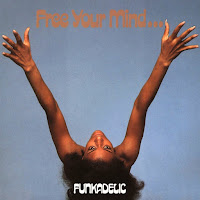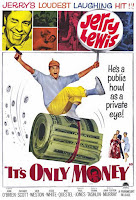Movies
Phantom Thread (2017)
So in a just world (which, I should stress, we do not live in), this should win all the Oscars, right? Picture, Actor (Daniel Day-Lewis), Supporting Actress (Leslie Manville), Director, Score (Jonny Greenwood's score—it's magical), Costume Design... and in an even juster world, it should have been nominated for even more (at least Screenplay and Actress [Vicky Krieps is terrific]). If it's not already abundantly clear, I am head-over-heels for this movie. It's as subdued and formally pristine a movie as Paul Thomas Anderson has ever crafted, but with a writhing, roiling underbelly that makes the ostensibly stuffy period trappings and muted acting choices all the more hilarious and fragile a shell to encase the truly unhinged psychosexual comedy that Phantom Thread actually is. The veneer of class and society that these characters inhabit is in each moment of the film at the brink of bursting at the seams to release the raging pathology at the heart of each individual. To be human is to be sick. Easily PTA's best film since There Will Be Blood and, if I were going to re-do my Favorite Movies of 2017 list, a shoo-in for #1. See it in a theater, folks, and let the exquisite composition of this work of art melt over you like so much butter over asparagus. Grade: A
Mudbound (2017)
A sprawling character drama that has a lot of good stuff—cinematography, acting, editing—but perhaps the best is the way that Mudbound crams what is surely 4 hours of regular movie plot into its relatively spry 2 hours and 15 minutes without sacrificing a bit of character depth. The secret sauce, I think, is the copious use of voiceover, something I would usually bristle at but here becomes a tremendous tool for the film to glide from POV to POV and time period to time period in a way that recalls Faulkner in general and As I Lay Dying specifically. The best Netflix movie I've seen yet, and perhaps the only one to get so close to greatness. (I talk about this movie in more detail on Episode 180 of the Cinematary podcast, which you can listen to here.) Grade: A-
Call Me By Your Name (2017)
As with Guadagnino's previous feature, A Bigger Splash, I'm finding it very difficult to find an emotional doorway into this film, and also like A Bigger Splash, I only really felt things when those feelings were delivered via music—this time in a duo of terrific Sufjan Stevens songs, deployed appropriately at the film's two emotional climaxes. Call Me By Your Name is the kind of arthouse movie that's never been my favorite, the kind where the drama is super internal and everything is a symbol (memorably, an apricot), and while this is a particularly wistful version of that with some very nice shots, it's not enough to sustain interest over 132 minutes. And I mean, this thing kind of lives and dies by how much you root for the central couple, and I'm just not feeling it. It's not just me, right? Armie Hammer's character is kind of a prick, right? Well-acted, well-shot, fantastically soundtracked, but just not something I felt strongly for when Sufjan wasn't on. Grade: B-
Marjorie Prime (2017)
Very indie sci-fi, right down to the concocting of a premise that doesn't need any special effects (though I know it was the original play that cooked it up first). In this one, people have developed technology that allows for families to create holographic versions of deceased loved ones, only the family then needs to educate the hologram about what the original person was like. This is a movie that's about ideas, ideas I wasn't really finding all that compelling until the final stage of the movie, at which they become very compelling, so hang in there until the end. Grade: B
Eagle vs Shark (2007)
This is the laziest comparison to make, but really, I only needed one Napoleon Dynamite in my life, and my affection for that one is mostly running on nostalgia now. Given that I'm just now seeing it, I'm not nostalgic for Eagle vs. Shark, so sorry, movie! It's not entirely without its charms—the animations are nice, and some of the mundane back-and-forth and comedic self-delusion hint at the genuinely excellent and melancholically hilarious stuff Taika Waititi would do just a few years later in Boy. But as a movie on its own... ehhh. Grade: C
The Nutty Professor (1963)
Beginning my Jerry Lewis exposure with The Bellboy and then moving on to It's Only Money and then to The Nutty Professor is like being invited to the house of an acquaintance whom you'd long suspected was part of a pyramid scheme but when you arrive, he's really polite and even puts on a Radiohead album, so it can't be all bad, right? But then he's asking if you're happy with your job, and then all of the sudden he's pulling out pamphlets and telling you how much money you can make a year if you get ten people to sign up a month. The Nutty Professor is a muddled, unfunny Jekyll/Hyde riff that can't even seem to decide who much we're supposed to be rooting for Jekyll or Hyde, and what's worse, it can't quite commit—despite pegging a weirdly sincere, weirdly long speech to the movie's end that explains that it's not good to be a douchebag lounge-rat hipster—to putting its foot down that it's a bad thing that Hyde tries to rape women. The movie is undeniably amazing-looking—Lewis knows his way around a camera, and the primary-colored outfits and lab equipment make for a sweet backdrop for a sour movie—and his comedic worldview is certainly singular. But I'll leave the singular-but-wretched worldviews to the academic auteurists who've taken also to Michael Bay. As for me: goodbye, Jerry Lewis. (I talk about this movie in more detail on Episode 180 of the Cinematary podcast, which you can listen to here.) Grade: D
Music
Funkadelic - Free Your Mind... and Your Ass Will Follow (1970)
The direct forebear to one of my favorite albums of all time, Free Your Mind feels every bit a stepping stone to Maggot Brain from Funkadelic's self-titled debut. Like most Funkadelic at this stage, the album begins with a 10-minute, spoken-word, space-funk-jam showcase for guitarist Eddie Hazel, followed by a series of shorter tracks tethered more closely to traditional song structures. Unlike Maggot Brain, however, Free Your Mind's shorter songs never really lose their shaggy psychedelia, and the result is an album that feels much looser and stranger than the one that succeeded it, if a bit less successful overall. This is strange stuff—a concept album of sorts about the intersection of money and liberty that's at once a salute to and a parody of African-American Christian spiritualism—and not all of it works ("Funky Dollar Bill," the album's most traditionally grounded song, feels kind of one-note, for example). But when it does, it's pretty special. Grade: B+






























